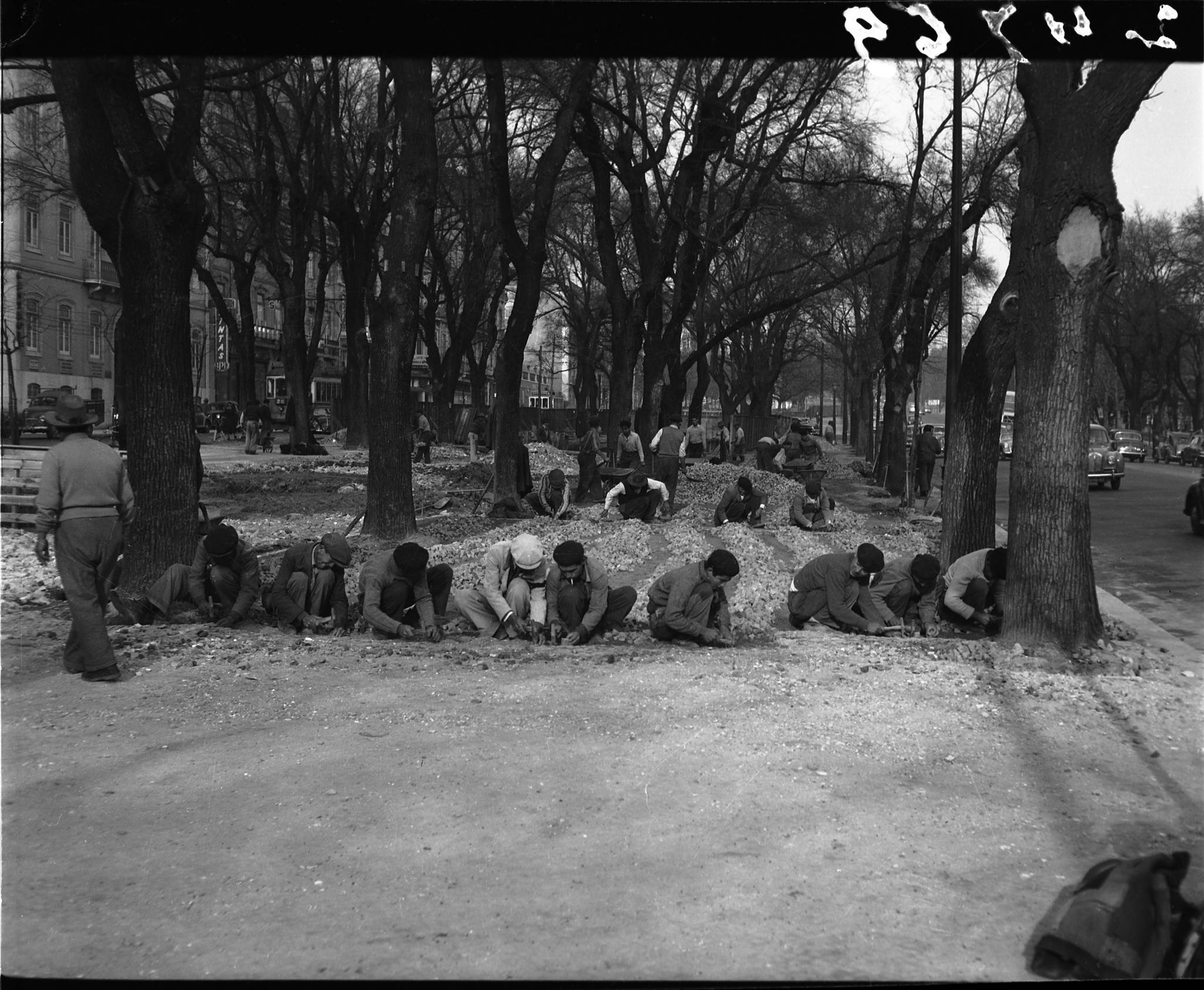
The traditional apprenticeship of the paver’s craft is carried out mainly in a mimetic and informal way. The transmission of knowledge of Portuguese pavement skills relies strictly on orality and demonstration, with apprentices observing the techniques of more experienced cobblestone pavers. It assumes that the learners place themselves beside someone who masters the craft and that, by imitating their methods, they will one day acquire the skill. Very often, especially in the past, the passing on of knowledge from paver to apprentice took place within the family, from parents to children, starting at a very young age.
Access to apprenticeship is, in principle, “open”, and it takes place in the very location where the new cobblestone pavement will be produced, whether outdoors or in covered spaces within different types of buildings. Traditionally, however, apprenticeship was slow (it could take many years to “understand the grain of the stone”, for example), gradual, and sometimes restricted, since many masters would not reveal all the secrets of their skill, withholding part of their knowledge as it was considered powerful. Not infrequently, apprentices would wait for moments when the masters stepped away from the work in order to practise the techniques they had just observed, so as to “toughen their hand”. At times, they even concealed from the apprentices where they might obtain a hammer to exercise themselves in the craft.
Some initiatory “rites” were also common in informal learning. These were forms of spontaneous pedagogy that forced apprentices – often very young – to remain attentive and to learn from their own mistakes.